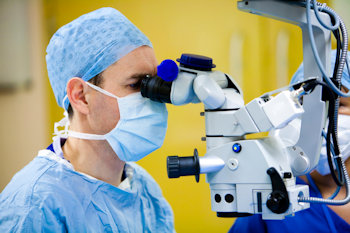After Cataract Surgery
Have you put off cataract surgery because you don’t know what to expect after the procedure, how quickly you can return to your normal activities, or whether you will still need glasses? Elmquist Eye Group has the answers to your questions.
About Elmquist Eye Group
 Residents of Southwest Florida have been coming to Elmquist Eye Group for more than 25 years for the highest quality eye care, including cataract evaluations and surgery, and other eye conditions that affect everyone.
Residents of Southwest Florida have been coming to Elmquist Eye Group for more than 25 years for the highest quality eye care, including cataract evaluations and surgery, and other eye conditions that affect everyone.
Yasaira Rodriguez, MD is an experienced eye surgeon specializing in refractive cataract surgery, eyelid surgery and in-office procedures.
About Cataract Surgery
If you have a cataract, it will be treated by surgically removing the cloudy natural lens and replacing it with a clear artificial lens, called an intraocular lens or IOL. The IOL is placed permanently inside the eye. It cannot fall out, does not require cleaning, and you will not even notice that it’s there.
Elmquist Eye Group is please to offer refractive laser-assisted cataract surgery, a procedure that is designed to make the treatment more precise, safer and more accurate. It provides the same excellent outcome as traditional cataract surgery but uses a different method.
Dr. Rodriguez uses special computer software to create a surgical plan with a 3-D map of your unique eye. The plan informs her of the location, depth, and length of the cataract. Using the plan and map, the femtosecond laser creates the incisions and assists in the cataract removal with a higher degree of precision than in traditional cataract surgery.
The laser also softens and fragments the cataract for removal, but the laser’s light energy is gentler and causes minimal damage to surrounding tissue. Dr. Rodriguez removes the old lens and inserts the new artificial intraocular lens (IOL) you have selected.
After cataract surgery, you can expect your vision to be a little blurry at first and may feel some mild discomfort for a few days, but this should improve within a few days.
Your eye doctor will monitor your healing for about a month after surgery, and complete healing often occurs within eight weeks. You will not have many restrictions as you recover, but it is important not to lift heavy objects or engage in strenuous exercise for about one week.
Whether or not you will need glasses after cataract surgery depends on the type of intraocular lens you have implanted. In some cases, you will still need to wear glasses for reading and close-up work.
Get in touch with Elmquist Eye Group at (239) 936-2020 to learn more about what to expect before, during and after cataract surgery. We will examine your eyes, explain the many options available to you, and help you decide if the time is right to improve your vision.
